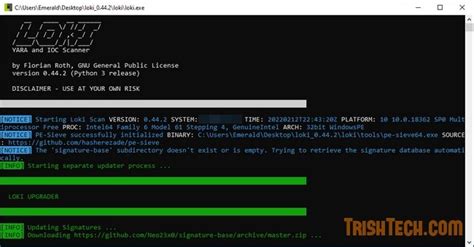In the evolving landscape of information dissemination, the ability to sift through and verify facts accurately and efficiently is more crucial than ever. With the proliferation of misinformation and disinformation, tools like Loki are stepping into the spotlight. They aim not only to address these challenges but also to offer a solution that integrates seamlessly into the modern digital workflow. Although Loki employs current generative AI models, it takes a structured approach by breaking down the complex task of fact verification into manageable components.
Each of these components is designed to tackle a specific part of the fact-checking process, thereby simplifying the overall task. However, skepticism remains about the effectiveness of AI in performing these tasks autonomously. The reliance on proprietary LLMs has raised questions about the true ‘open-source’ nature of Loki, as these models often come with their own restrictions and limitations. Nevertheless, the sheer potential of Loki cannot be dismissed without acknowledging how it aims to bring a layer of rigor and credibility to fact verification through its modular and step-by-step process.
Loki’s approach to fact-checking is a multi-tier system where each part of the verification process is addressed separately. This includes the breaking down of text into verifiable claims, setting up logic tokens, and using a sophisticated algorithm to check these claims against verified data sources. Perhaps one of the more innovative features is its ability to present users with all retrieved evidence and the rationale behind each assessment, fostering a level of transparency that is often missing in automated systems.
Critiques around Loki’s dependency on proprietary LLMs and the challenges in customizing these models are not unfounded. The tool’s claim to be an open-source solution while relying heavily on non-open-source elements presents a paradox that the developers need to address more transparently. This ties into the broader conversation about the openness and accessibility of AI tools and the transparency of AI-driven validations, which are essential for building trust among users.
One cannot overlook the potential impact of incorporating such a tool in various real-world applications. For instance, envision a live political debate where claims made by the speakers are verified in real-time, providing immediate factual feedback to viewers. The implications for media and education are profound, as they could potentially transform how people interact with news and other forms of dynamic information content.
The development team behind Loki is actively seeking collaboration from the community to enhance the tool’s capabilities. This open invitation to contribute to its development not only enriches the tool with diverse insights but also aligns with the ethos of the open-source community. Enhancements such as easier customization of LLMs and the incorporation of various data sources are on the roadmap, aiming to make Loki not just a tool for verification, but a robust platform for understanding and disseminating factual information.
The criticisms and challenges that Loki faces are not trivial but are indicative of the growing pains typical in innovative technological solutions. From technical limitations to philosophical debates about AI’s role in truth dissemination, Loki represents a microcosm of the larger dialogue happening in the tech world today. As AI continues to evolve, so too will the tools that utilize AI to tackle some of society’s most pressing issues.
Ultimately, the success of Loki and similar tools will depend on their ability to adapt, respond to feedback, and remain at the forefront of technological advancements while staying true to their original mission of promoting accuracy and trust in information. The debate surrounding Loki also serves as a reminder of the need for continuous scrutiny and dialogue about the ethical implications of AI and its applications in real life. This is not just about a tool but about shaping a future where technology complements human judgment without overshadowing the essential human elements of nuance and ethical consideration.


Leave a Reply